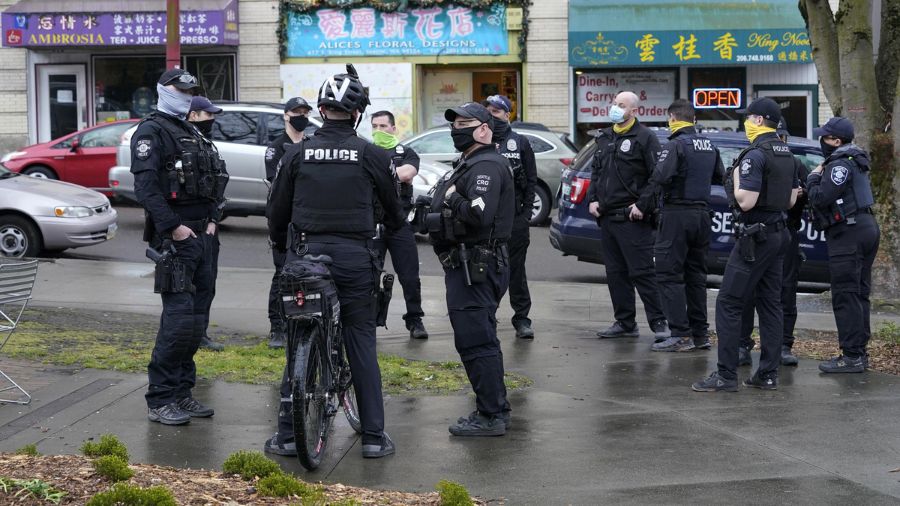Former FDA Commissioner: Cities may have to ‘shut down their economy’ for national interest
Mar 9, 2020, 12:22 PM

This undated handout photo from the Centers for Disease Control and Prevention (CDC) shows a microscopic view of the Coronavirus at the CDC in Atlanta, Georgia. (CDC/Getty Images)
(CDC/Getty Images)
Gov. Jay Inslee is currently mulling mandatory measures for social distancing to help prevent the spread of coronavirus, and hasn’t yet committed to the idea of quarantines. But according to former FDA Commissioner Scott Gottlieb, we’re the past the point of containment in the country and more drastic mitigation policies may be needed in cities like Seattle.
“We’re past the point of containment. We have to implement broad mitigation strategies. The next two weeks are really going to change the complexion in this country. We’ll get through this, but it’s going to be a hard period,” Dr. Gottlieb told Face the Nation. “We’re looking at two months probably of difficulty. To give you a basis of comparison, two weeks ago, Italy had nine cases. Ninety-five percent of all their cases have been diagnosed in the last 10 days.”
Gov. Inslee weighs ‘mandatory measures’ as coronavirus outbreak continues
Specifically, he believes that mitigation strategy may have have to resemble what Italy did in quarantining a large segment of their population, which can significantly undermine the local economy. The idea being that a state like Washington or a city like Seattle might have to shut down in a sense for the sake of the rest of the country.
“Well, I think no state and no city wants to be the first to basically shut down their economy. But that’s what’s going to need to happen. States and cities are going to have to act in the interest of the national interest right now to prevent a broader epidemic,” Dr. Gottlieb said. “Close businesses, close large gatherings, close theaters, cancel events.”
Washington state’s coronavirus outbreak continues to escalate with 136 confirmed cases across at least eight separate counties, with 18 deaths statewide.
Dr. Gottlieb believes that for a city to take this major step, the federal government has to provide an economic incentive which will help support the inevitable losses the city will suffer.
“I think we need to think about how do we provide assistance to the people of these cities who are going to be hit by hardship, as well as the localities themselves to try to give them an incentive to do this. Right now, if there’s no economic support to do this, you don’t want to be the first to go,” Dr. Gottlieb said.
How prepared are our hospitals for the spread of coronavirus?
“But in a situation like this, we want them to act not just in their local interests, but the national interests, I think we need to think about both trying to coerce them. We can’t force them but also try to provide some incentives in terms of support. And we’re going to end up with a very big federal bailout package here for stricken businesses, individuals, cities and states. We’re better off doing it upfront and giving assistance to get them to do the right things than do it on the back end after we’ve had a very big epidemic.”













